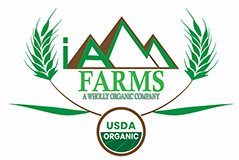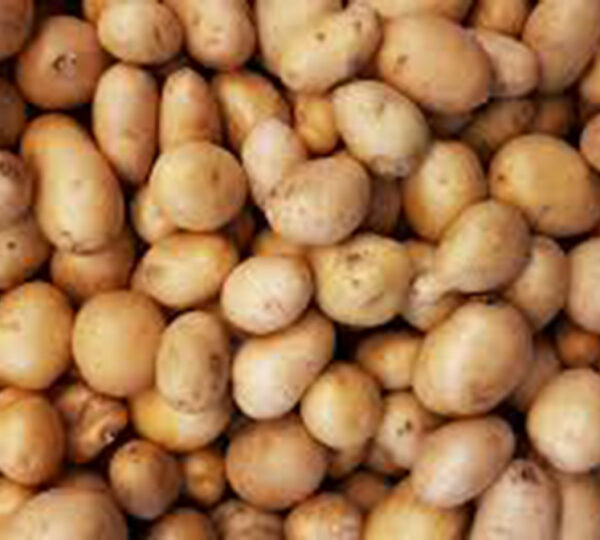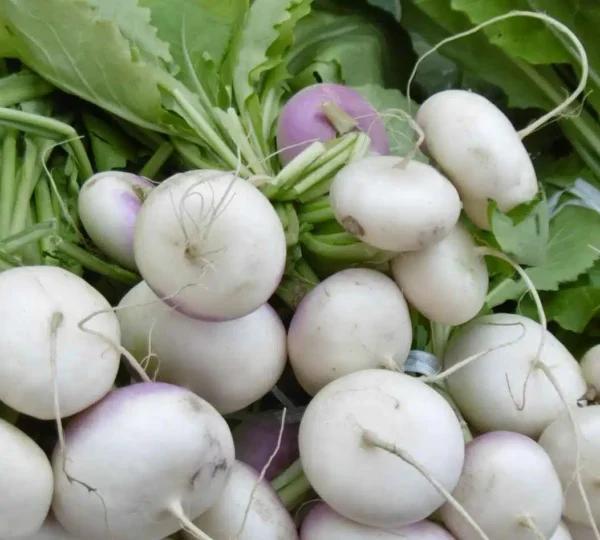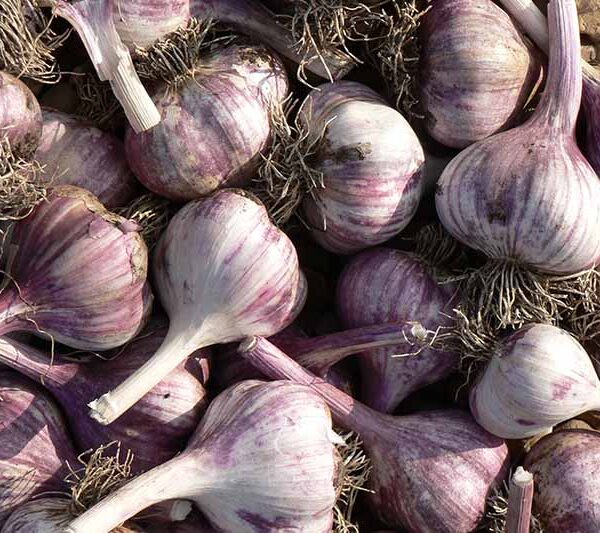Introduction
Fresh farm organic roots has gained significant importance in recent years due to its numerous health and environmental benefits. In addition, Iamfarms Organic Company is at the forefront of this movement. Additionally, Iamfarms is committed to producing high-quality organic roots. Hence, this article delves into the various aspects of organic roots. Subsequently, the article will reveal the health benefits of organic roots, the sustainable practices of Iamfarms, and much more. Therefore, whether you’re a health enthusiast, an environmental advocate, or simply curious about organic farming, this comprehensive guide will provide valuable insights.
About Iamfarms organic company
-
- History and mission
Iamfarms Organic Company was established in 2016 in Alabama to provide the highest-quality organic produce while promoting sustainable farming practices. Furthermore, fresh organic roots farming is the growing of root vegetables without the use of synthetic pesticides. Therefore, the founders recognized the growing demand for organic food and aimed to create a farm that meets and exceeds organic standards.
-
- Location and facities
Fresh farm organic roots is located in the heart of Alabama. Iamfarms boasts expansive fields dedicated to cultivating organic roots. The farm has state-of-the-art facilities that ensure the produce is grown, harvested, and processed under optimal conditions, maintaining the highest quality and freshness.
-
- Commitment to sustability
Iamfarms is committed to sustainability in every aspect of its operations. From using renewable energy sources to implementing water conservation techniques, the farm strives to minimize its environmental footprint. Their holistic approach to farming supports the ecosystem and ensures the long-term viability of their farming practices.
What are organic roots?
-
- Definition and types
Organic roots refer to root vegetables grown without synthetic pesticides, fertilizers, or genetically modified organisms (GMOs). Common organic roots include carrots, beets, radishes, and sweet potatoes. Fresh farm organic roots and vegetables are known for their rich nutrient content and are a staple in many diets worldwide.
-
- Nutritional benefits
Fresh organic roots are packed with essential vitamins and minerals. Essentially, they are an excellent source of dietary fiber, which aids digestion, and are rich in antioxidants that help combat free radicals. Additionally, they provide essential nutrients such as potassium, magnesium, and vitamins A and C, which contribute to overall health and well-being.
Common varieties grown at Iamfarms
At Iamfarms, various fresh organic roots farms are prepared to cater to different tastes and nutritional needs. Again, some of the popular varieties include:
- Carrots: Known for their high beta-carotene content.
- Beets: Rich in nitrates and antioxidants.
- Radishes: Low in calories and high in vitamin C.
- Sweet Potatoes: Packed with fiber and vitamin A.
Health benefits of organic roots
-
- Boost immunity
Fresh organic root farms are excellent for boosting the immune system. Essentially, the high levels of vitamins and antioxidants help strengthen the body’s natural defenses, reducing the risk of infections and illnesses.
-
- Supporting digestive health
Fresh farm organic roots is the source of various nutrients. Study suggested that fresh farm organic roots are source of dietary fiber found in organic roots aids in maintaining a healthy digestive system. More importantly, it helps regulate bowel movements, prevents constipation, and promotes the growth of beneficial gut bacteria.
-
- Reducing inflamation
Many organic roots have anti-inflammatory properties. For example, beets contain betalains, which reduce inflammation and protect cells from damage. As an evience, consumption of organic roots can help manage chronic inflammation and related conditions.
Environmental Benefits of organic farmings
-
- Soil health
Organic farming practices prioritize soil health. More important, there is an evidence that farmers enhance soil fertility and structure because they avoid the use of synthetic chemicals while using natural compost. Subsequently, this results in healthier plants and more nutritious produce.
-
- Biodiversity
Fresh organic root farming often supports more extraordinary biodiversity compared to conventional farms. Furthermore, fresh organic root farms, in the absence of harmful pesticides, allow various plants, insects, and wildlife to thrive, creating a balanced and sustainable ecosystem.
-
- Water conservation
Sustainable water management is a crucial aspect of organic farming. Luckily, drip irrigation and rainwater harvesting techniques help conserve water and ensure efficiency. These methods are also crucial in maintaining the health of the crops and the surrounding environment.
The Growing process
-
- Soil preparation
Preparing the soil is the first step in growing healthy organic roots. Again, this process involves testing the soil to ensure it has the proper nutrient balance. More importantly, soil tests can help farmers adjust their use of organic compost and natural fertilizers.
-
- Planting techniques
Planting techniques for organic roots vary depending on the type of vegetable. Next, farmers plant planted see in well-prepared beds, with careful spacing to ensure each plant has enough room to grow and access nutrients.
-
- Harvesting methods
Harvesting organic roots requires careful timing to ensure the vegetables are at their peak ripeness. Furthermore, the methods organic farmers used aim at miniming damage to the roots and preserve their quality. Additionally, hand harvesting is commonly practiced to ensure precision and care.
Organic certification
-
- Certification process
To be certified organic, farms must adhere to strict guidelines certifying bodies set such as USDA . In reality, the procedures involve regular inspections, record-keeping, and adherence to organic farming practices.
-
- Standards and regulations
Organic certification standards cover various aspects of farming, including soil quality, pest and weed control, and non-GMO seeds. These standards ensure that farmers grow organic produce in a way that supports health and sustainability.
-
- Importance of certification
Organic certification assures consumers that the produce they are purchasing meets high quality and sustainability standards. It also supports farmers who are committed to environmentally friendly practices.
Challenges in organic farming challenges
-
- Pest control
One of the main challenges in organic farming is managing pests without synthetic chemicals. For this reason, farmers protect their crops using natural pest control methods such as crop rotation, beneficial insects, and organic pesticides.
-
- Weather dependency
Fresh farm organic roots is highly dependent on weather conditions. Definetely, extreme weather events such as droughts or floods can significantly impact crop yields. Hence, farmers must be adaptable and resilient to cope with these challenges.
-
- Marketing competition
Organic farmers often need more competition from conventional farms that can produce cheaper food. However, the growing demand for organic produce allows organic farmers to carve out a niche market.
Consuner FAQS
-
- How to identify organic products?
Organic farmers use their certification marks on organic products like the USDA Organic Seal. Esssntially, reading the labels and looking for these marks can help consumers identify genuine organic produce.
-
- Best ways to store organic organic roots
Proper storage of organic roots is important to maintaining their freshness and quality. Equally, most roots should be kept in a cool, dark place, such as a root cellar or refrigerator, and in perforated bags to allow air circulation.
-
- Cooking tips and recipes
Fresh organic root farms are versatile, and farmers use recipes in various dishes. Thus, roasting, steaming, and sautéing are popular cooking methods. Incorporating these roots into salads, soups, and stews can enhance flavor and nutrition.
Personal stories
-
- Testimonials from farmers
Farmers at Iamfarms share their experiences and the joys of organic farming. Therefore, they talk about the satisfaction of growing high-quality produce and the positive feedback from customers.
-
- Customer succes stories
Customers share how switching to organic roots has positively impacted their health and lifestyle. So, many report feeling more energetic and experiencing fewer health issues.
-
- Community impact
Iamfarms is actively involved in the local community. Therefore, Iamfarms provides education on sustainable farming practices and supporting local food initiatives. Consequently, their efforts have fostered a strong sense of community and appreciation for organic farming.
Expert insights expert
-
- Interviews with agronomists
Agronomists provide insights into the science behind organic farming and the benefits of organic roots. Hence, they discuss soil health, plant nutrition, and sustainable farming techniques.
-
- Advice from nutritionists
Nutritionists highlight the health benefits of incorporating organic roots into one’s diet.








